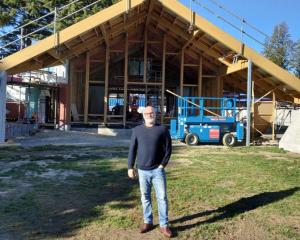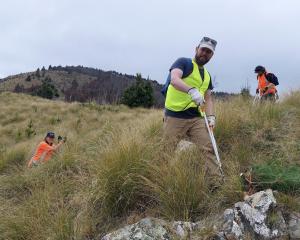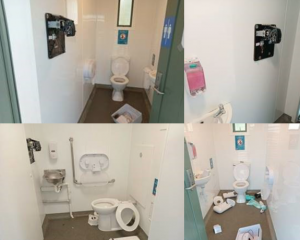Blanket speed reductions across West Coast roads will be rolled back by the end of the year with the government announcing a new timeline ending the "road to zero" safety campaign.
Transport Minister Simeon Brown confirmed the current "untargeted approach" to speed settings would go when the new Land Transport Policy is signed off by the end of the year.
The blanket speed setting rollback will include council-controlled roads and the State Highway network.

Now, economic impact — including travel time — and the views of local communities and road users will have to be considered alongside safety in setting speed limits.
Variable speed limits outside schools during pickup and drop-off times would remain; speeds of 110kmh will be allowed on some roads "of national significance".
In January the West Coast Regional Transport Committee (RTC) decided to press ahead with its proposed speed management plan anyway.
That was despite the Minister’s directive in December to stop speed reduction work.
The now released West Coast Regional Speed Management Plan, which closes for public submissions on April 16, focuses only on local roads and school zones in the region.
Transport consultant Matthew Noon told the January RTC meeting the regional speed management approach was supported by the three district council road control authorities, "not withstanding the changes".
The draft plan includes blanket speed reductions to 30kmh across the entire villages of Blackball and Moana, however, the region’s state highway network was excluded.
Greymouth Mayor Tania Gibson on Friday welcomed the rollback after previously expressing "shock and horror" at the implications of proposed blanket speed reductions in the region.
"It’s good that this has been rolled back ... we were pretty appalled. We were not happy at all and would have fought what was proposed to us," Mrs Gibson said.
The focus on school speed zones "and keeping kids safe" was the right priority while the proposed 30kmh limit across Moana had come out of community advocacy, she said.
However, she said the rationale for the Blackball proposal was less clear.
"Blackball is the one that was discussed that may be contentious but we will be listening very closely to their views ... I believe the proposals have gone too far," Mrs Gibson said.
West Coast Transport Committee chairman Peter Ewen said local communities should be having a say in setting speed and welcomed the new approach.
He said it was in contrast to a top-down approach where the blanket speed reductions had come down "as a decree".
The region needed meaningful input at a local level although it was unclear yet what role the RTC would play, Cr Ewen said.
"If you want to take anything forward with speeds, you’ve got to take the local community with you. The blanket speed thing, that’s what got people’s backs up," he said.
Mr Brown’s office told LDR the mechanism to bring local communities and road user views into the conversation under the proposed policy is still being developed.
West Coast Road Safety co-ordinator Glenys Byrne said they endorse the conversations around proposed speed limit changes on the West Coast.
"In particular it is good that the councils have committed to improving the safety of our tamariki by proposing to reduce all the speed limits around their schools," Ms Byrne said.
However, she said there needed to be a wider conversation about road safety.
"We know that there are more crashes within our networks than what gets officially recorded and many of these are a direct result of inappropriate speed," she said.
- LDR is local body journalism co-funded by RNZ and NZ On Air.
By Brendon McMahon











